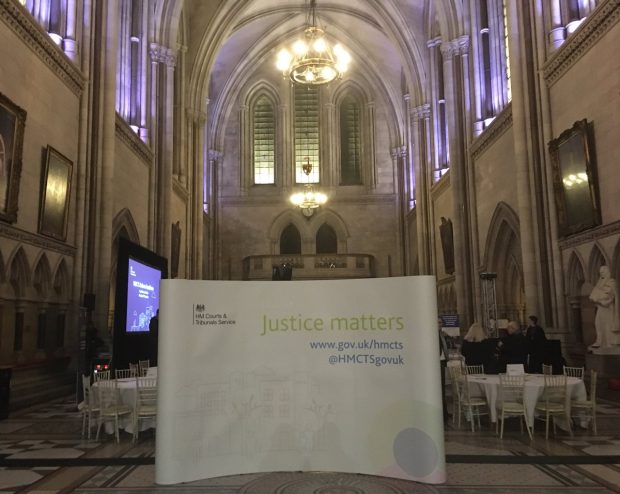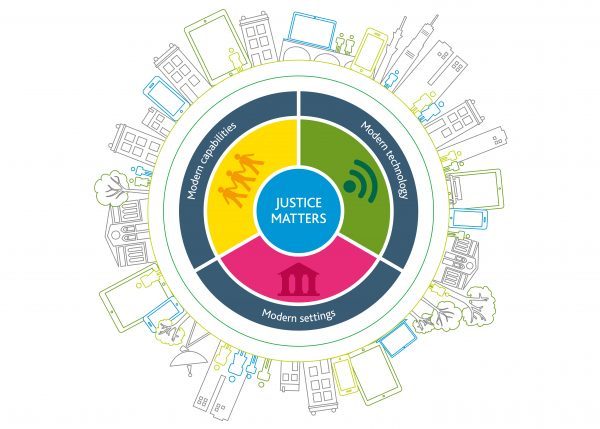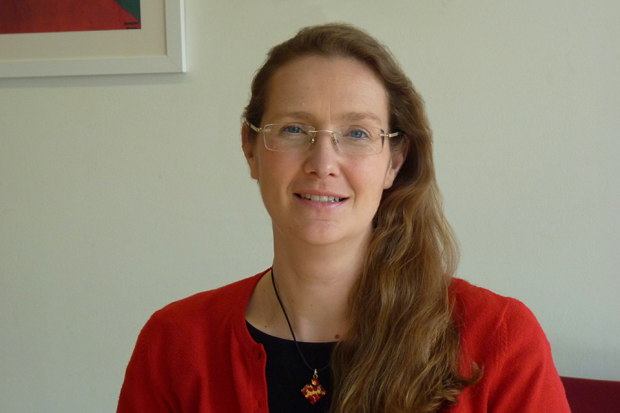Reform means getting the basics right too
...and will provide a national online and telephone service to help court users, both public and professional, as well as doing the administrative work that takes cases forward in a...
...and will provide a national online and telephone service to help court users, both public and professional, as well as doing the administrative work that takes cases forward in a...
Susan Acland-Hood explains why she believes digital change and modernisation are so important and why simply putting more cash into the existing system cannot be the long-term answer to the challenges we face.

A blog by Susan Acland-Hood in which she details how some of our courts and tribunals buildings can be uncomfortable and difficult to use, even at the best of times. Susan confirms we are well aware of these challenges, and we’re doing everything we can with the resources available to improve the situation now and …
Susan Acland-Hood explains that one important part of our overall reform programme to build a more modern, accessible and efficient justice system, is to enable our courts to make greater use of video technology. Susan details that with increasing sophistication in the technology available, we believe it can play an even greater role in the …

Susan Acland-Hood talks about our first three legal professional roadshows and how they were full of ideas, commitment and challenge that discussed the overall reform programme with a particular focus on scheduling and listing practice, flexible operating hours and virtual hearings.

A blog post from Susan Acland-Hood in which she talks about what is planned on courts and tribunals reform over the next 18 months. This includes taking the things we’ve begun to develop so far and building them out further.

Susan Acland-Hood confirms that today, we are publishing the invitation to tender for an independent organisation to provide an effective assessment of the pilots along with a supporting prospectus, which sets out the rationale for testing flexible court operating hours, and invites views on the detail of how the pilots can best be carried out.

The second in a series of blog posts from Susan Acland-Hood. The first one set out why reform is needed and why we need to do more to engage and talk more widely about what we’re doing. In this blog post Susan talks a bit more about the approach we are taking to reform, and …

A blog from Susan Acland-Hood on our plans to re-tender for an independent organisation to lead the evaluation work for the flexible operating hours pilot. At the same time, we’ll make more information available and spend more time with legal professionals in each jurisdiction, including those outside the pilot areas, to refine our plans. This …

Susan Acland-Hood reflects on what she has learnt since she started as CEO of HMCTS last November. Susan explains her plans to write a set of blog posts that outline what we need to do, what we’ve done so far, what our plans are, and how to get involved in shaping HMCTS’s reforms for the …
Keep up to date on all things regarding HM Courts & Tribunals Service.
More about this blog.